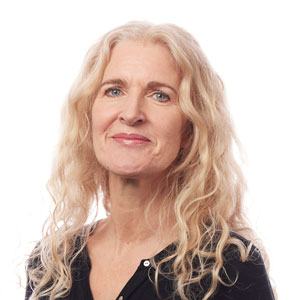OK, I admit, I wrote that headline to get your attention.
But it is only partly a ruse. I really am wondering about the role of the ‘aspirational’ in marketing and advertising.
And here’s why:
In all the insight work we’ve been doing recently, one thing keeps bubbling up, and it’s coming from a deep place within people that changes the atmosphere in the room when it is voiced, and recognised as shared.
‘I just want to relax and be myself’
That’s what we’re hearing, in all sorts of contexts. It’s fuelled by the intense busy-ness of life and the pressure to be interesting and ‘achieving’ that our connected, social-media-mad world has created. It’s expressed as a yearning not to be ‘better than’ I am now but just to hang out, chill out, let the washing build up and the kids stay up late, eat cake and just be, warts and all, in the perfection of our own imperfection. And this is not a rational thing; it’s a heart-felt, soul-felt thing for people
The implications are interesting and potentially profound:
It doesn’t mean the ‘aspirational’ isn’t motivating or useful in marketing and comms; without aspiration, people wouldn’t do anything differently at all
What it could mean, though, is that there are times when what is aspirational may be more powerful if it is framed differently. In terms of potential to really connect with people, ‘the better life over there that I don’t have now over here’ can arguably give way to ‘the life I can already have because I already do have it, right here (given half a chance)’
By inference, brands could do well to answer the fundamental question:
How does this brand support and enhance my yearning to relax and be more of my true self?
This may take many forms and of course some brands have already successfully – and famously – answered and acted on it: accepting me and boosting my self-esteem (Dove), keeping things cheerfully and unpretentiously simple (Innocence), being reassuringly easy to use while also satisfying our sense of an unfussy, ‘pure’ aesthetic (Apple)
Other brands could do well to consider what role they might play in the liberation of self, and the permission to relax and ‘be’ – because this way can lie the kind of deeper, richer connection brands need to thrive and make the kind of difference in our world that means something, and lasts.
Photo: https://www.flickr.com/photos/mckln/3449319843/

Maddy is Director of Lucid. She has been described as a ‘maestra’ with groups of people and is appreciated for her passion and commitment as well as the clarity of her strategic thinking, insight and expression. Maddy began her career in advertising at Ogilvy and BBH and then worked at the Arts Council, English National Opera, AEA consulting and Stimulating World Research before setting up Lucid.
